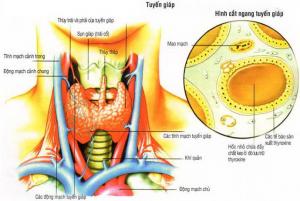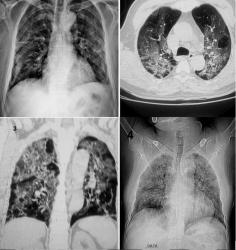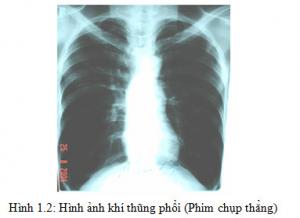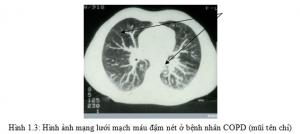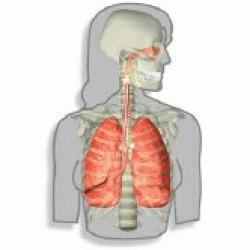Reporting a strong association between asymptomatic carotid stenosis and future stroke risk, Dominic Howard (Oxford University Hospitals NHS Trust, Oxford, UK) and colleagues write in The Lancet Neurology that their findings are “contrary to the assumptions of current guidelines and the findings of subgroup analyses of previous randomised controlled trials”.
The research group’s population-based cohort study, systematic review, and meta-analysis found reported stroke risk to be “highly dependent” on the degree of asymptomatic carotid stenosis, suggesting that the benefit of endarterectomy “might be underestimated in patients with severe stenosis”. Conversely, the investigators disclose that the five-year stroke risk was low for patients with moderate stenosis on contemporary medical treatment, “calling into question any benefit from revascularisation”.
“There is uncertainty around which patients with asymptomatic carotid stenosis should be offered surgical intervention,” Howard et al begin. They note that stroke rates were unrelated to the degree of stenosis in the medical-treatment-only groups in previous randomised trials, but suggest that “this could simply reflect recruitment bias”. In addition, they stress that there has been no systematic analysis of a stenosis-risk association in cohort studies.
In the present study, the investigators aimed to establish whether there is any association between the degree of asymptomatic stenosis and ipsilateral stroke risk in patients on contemporary medical treatment.
Howard and colleagues performed a prospective population-based study—the Oxford Vascular study (OxVasc)—as well as a systematic review and meta-analysis. “All patients in OxVasc with a recent suspected transient ischaemic attack or stroke, between 1 April 2002 and 1 April 2017, who had asymptomatic carotid stenosis were included in these analyses,” they detail.
The investigators commenced contemporary medical treatment and determined ipsilateral stroke risk in the cohort by face-to-face follow-up (to 1 October 2020) and also performed a systematic review and meta-analysis of all published studies (from 1 January 1980 to 1 October 2020) reporting ipsilateral stroke risk in patients with asymptomatic carotid stenosis. They searched MEDLINE, Embase, and the Cochrane Central Register of Controlled Trials, and included both observational cohort studies and medical treatment groups of randomised controlled trials if the number of patients exceeded 30, ipsilateral stroke rates (or the raw data to calculate these) were provided, and were published in English.
Five-year ipsilateral stroke risk increased with the degree of stenosis
Within the 15-year OxVasc timeframe, 2,354 patients were consecutively enrolled in the study and 2,178 patients underwent carotid imaging, of whom 207 had 50–99% asymptomatic stenosis of at least one carotid bifurcation (mean age at imaging: 77.5 years; 88 (43%) women).
Writing in The Lancet Neurology, Howard et al report that the five-year ipsilateral stroke risk increased with the degree of stenosis. They elaborate that patients with 70–99% stenosis had a significantly greater five-year ipsilateral stroke risk than did those with 50–69% stenosis—six (14.6%; 95% confidence interval [CI] 3.5–25.7) of 53 patients vs. none of 154; p<0.0001. Furthermore, patients with 80–99% stenosis had a significantly greater five-year ipsilateral stroke risk than did those with 50–79% stenosis—five (18.3%; 7.7–29.9) of 34 patients vs. one (1%; 0–2.9) of 173; p<0.0001.
Of the 56 studies identified in the systematic review (comprising 13,717 patients), the authors note that 23 provided data on ipsilateral stroke risk fully stratified by degree of asymptomatic stenosis (in 8,419 patients).
Howard and colleagues relay that stroke risk was linearly associated with degree of ipsilateral stenosis (p<0.0001); there was a higher risk in patients with 70–99% stenosis than in those with 50–69% stenosis (386 of 3,778 patients vs. 181 of 3,806 patients; odds ratio [OR] 2.1 [95% CI 1.7–2.5], p<0.0001; 15 cohort studies, three trials) and a higher risk in patients with 80–99% stenosis than in those with 50–79% stenosis (77 of 727 patients vs. 167 vs. 3,272 patients; OR 2.5 [1.8–3.5]; p<0.0001; 11 cohort studies).
Finally, the authors communicate that heterogeneity in stroke risk between studies for patients with severe versus moderate stenosis (Phet<0.0001) was accounted for by highly discrepant results (Pdiff<0.0001) in the randomised controlled trials of endarterectomy compared with cohort studies (trials: pooled OR 0.8 [95% CI 0.6–1.2], Phet=0.89; cohorts: 2.9 [2.3–3.7], Phet=0.54).
Benefit of surgical intervention “might be underestimated in current guidelines”
While the present results differ from those of previous randomised controlled trials (RCTs), Howard and colleagues remark on the potential drawbacks of this study type. Despite RCTs being the “gold standard” for quantifying the effects of an intervention, they are “nonetheless prone to selection biases when determining risk associations within treatment groups,” the authors write. They suggest that guidelines should consider this issue when setting criteria for selecting patients for an intervention.
Howard et al conclude: “Despite advances in medical therapy, the stroke risk for patients with high-grade asymptomatic carotid stenosis remains high, suggesting that the ben.
Source VascularNews
Duc Tin Clinic
Tin tức liên quan
Điện thoại bàn: (028) 3981 2678
Di động: 0903 839 878 - 0909 384 389








